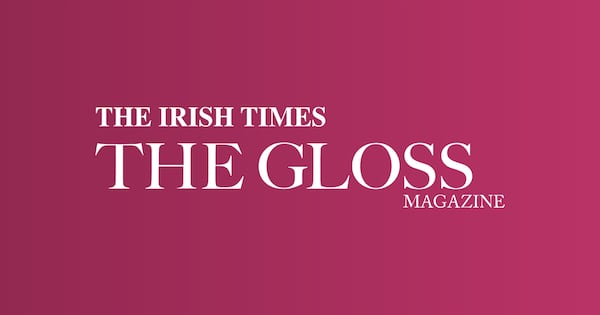Every now and then knitwear hits the headlines, when cardigans make a comeback or movie superheroes sport jumpers rather than capes. They are mostly nubby, textured Aran knits, yet one recent British newspaper report claiming that the knits worn by Colin Farrell in the Banshees of Inisherin “have the style world swooning… and won fashion” (bolstering reports that sales in Irish knitwear shops had increased as a result), went on to claim that great fishermen’s sweaters were hard to find, recommending instead jumpers from Cos and Toast. Imagine!
Do they never look to Ireland and its rich heritage? There is a lot going on here at the moment, from Carol Feller’s Stolen Stitches in Cork, with a huge following for its two hundred original patterns and knitting lessons, Liadain Aiken using undyed pure Irish wool and natural dyes, to the continuing success stories of Inis Meáin, IrelandsEye and many other big Irish knitwear companies too numerous to mention. Many of the stylish knits from &Daughter, based in the UK, are made in Ireland. And of course it was 83-year-old Delia Barry who was commissioned by costume designer Eimer Ní Mhaoldomhnaigh to knit the jumpers for The Banshees of Inisherin with Donegal wool.
Just launched on Tuesday, spring solstice day, IrelandsEye’s latest collection, called Solstice, “inspired by the strong character of Irish women” and styled by Paula Hughes, is a range of sweaters, vests and cardigans with masculine shapes and generous proportions in brightly coloured soft wool cashmere.
The company in Baldoyle is one of the few knitwear outfits in the east. It exports to some 60 countries, is paper-free, has energy-free climate control and recycles steam from pressing machines. The company’s proud boast is that all its pieces are finished by hand and more than 20 pairs of hands contribute to the making of each garment. Head of design Maria-Christina McPadden is committed to slow, ethical fashion. She cut her cloth, so to speak, working for MaxMara, Viktor & Rolf and Louise Kennedy.
READ MORE

Off the west coast, the latest collection from Inis Meáin knitwear, now run by Ruairí and Marie-Thérèse de Blacam along with their new Island Stays project, is made entirely in linen. It’s a nod to linen’s heritage on the island, where it was widely used until the middle of the 19th century. The 1821 census shows that it had as many flax as wool spinners and local fields and gardens still bear the evidence of that history with names like Garraí an Lín (the flax garden) and Loch an Lin (the flax lake). The couple have planted a flax garden so they can enjoy its blue flowers all summer long.
The colours in the new collection are drawn from the landscape: neutral tones reflecting the limestone paths, vivid hues of the island’s natural flora and fauna and sunset shades. Its popular and patented Aran pattern and Claíochaí stonewall styles are both now available in 100 per cent linen, perfect for the warmer months.

Winner of a Design & Crafts Council Ireland Future Makers award, down in West Cork Liadain Aiken has been shortlisted for an RDS Craft Award for her pioneering use of Irish wool from sheep to sweater. “It’s about going back to our heritage, returning to our roots,” she says of her Love All Wool project. Taking the wool from Jacob and Zwartbles sheep from Moyhill Farm in Co Clare, Galway wool from Donegal Yarns and collaborating with Malú Colorín of Talu for natural dyes, she has the dyed wool processed in Olann mill in Cavan and now uses it to make garments. “The Circular by Design programme inspired my need to navigate what it is to be smaller and helped me hone in on what is important to me,” says Aiken. Dyes used were weld and indigo for yellow, blue and green and madder for rust red.
In Cork, Carol Feller’s Stolen Stitches is a paradise for handknitters with its array of patterns, colours and luxury yarns. A structural engineer, designer and teacher, she set up her business in 2008 to help knitters expand their knowledge, and created an online knitting community which now has more than 18,000 followers on Instagram.
“Before, knitting used to be a necessity, but now when you can choose your own pattern, colours and yarns and enjoy it, it is a luxury. It is slow fashion, meditation and self-care,” she says, explaining its popularity in the last five years.
Her success has been recognised by Cork City Local Enterprise Office, which has nominated her for the National Enterprise Awards in April. She has also collaborated with Blátnaid Gallagher of Galway Wool and Donegal Yarns on the Galway Blanket Club, knitting with Galway wool and sharing the story behind it.

In Westport, Kelly’s knitwear shop in the Octagon, the country’s second-oldest shop (after Jeremiah Higgins in Claremorris) was established in 1876. Fourth generation Susan and James Kelly now run it and everything in it – tweed, knitwear, yarn – is made in Ireland. Their floor-to-ceiling selection of pure new wool, merino, homespun and lambswool skeins takes a big space in the shop and they recently introduced a wool gift box which contains a choice of colour of Irish wool plus patterns.
It still annoys a lot of our knitwear producers that so called “Irish” knitwear is often not Irish but made in China or elsewhere. Customers should always check the label before purchase. If it is becoming cool to speak Irish – and Manchán Magan is certainly speeding that up with books such as Thirty-Two Words for Field and Dána Gránna: Nasty Words for People – it should also be cool to wear it. So keep it close.














